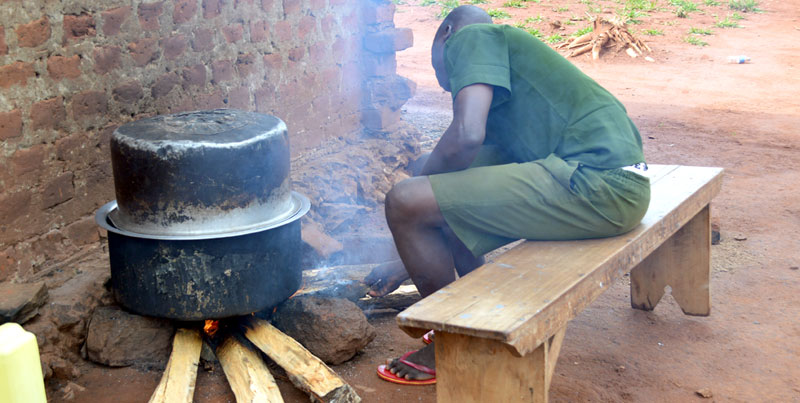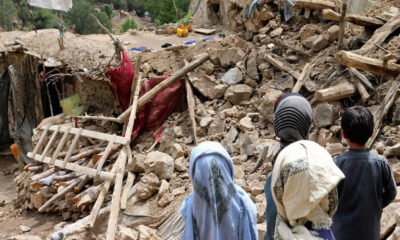News
Juveniles wasting away at Gulu’s remand home
Under-funding blamed for sorry state
In the 1990s, Gulu district leaders mooted the idea of establishing a remand home for Juvenile Delinquents as a solution to the challenges that were associated with the long distances that were associated with traveling 350kms to Mbale to hear cases in court.
Implementation of the idea suffered a temporary delay because of the war, only to be revived later when the war eased. In 2009, the center became a reality and started to host juveniles from up to 8 districts of Acholi sub-region I.e Nwoya, Amuru, Pader, Lamwo, Agago, Kitgum and Omoro and Gulu.
The districts committed to support the remand home located in Gulu district through a quarterly contribution of 600,000 per district.
In 2015, it became evident that the facility was suffering from serious financial strain as the districts were defaulting on their commitments.
The then Chief Administrative Officer (CAO) of Gulu John Bosco Akera wrote to the Office Permanent Secretary in the Ministry of Gender Labor and Social Development informing them of their inability to support the facility. He suggested that the facility be taken over by government.
In the letter, the CAO highlighted that the district was financially constrained to run the remand home and suggested that the government takes it over as a remand home, the way it does manage Kampiringisa – in Mpigi.
To date, the challenges that made the CAO write to the P.S have since escalated with the children at the juvenile facility reportedly going wild due to hunger amid lackluster security.
The recent food shortage particularly exposed the centre as the juvenile detainees rioted because of the authorities inability to provide food.
When this reporter tried to establish the state of affairs of the facility, she discovered that it was mired in a host of challenges ranging delayed salaries for security officers, food shortages, a breakdown in the leadership, juveniles who had over-stayed their mandatory periods of detention.
Paulo Ojul, 57, a resident of Custom Corner and one of only two security guards that were hired to guard the facility, informed The Sunrise that he has not been paid for close to seven months. Ojul is supposed to receive Ushs150,000 per month.
Acaye blamed the problem on failure by local governments that send the children to the remand home to meet their part of the bargain of planning and budgeting for the facility. He added that the facility lacks basic requirements for rehabilitating the children like a decent environment to learn new things that can transform their minds.
In order the make up for the shortages, Acaye said, the more mature and responsible children are asked to take care of their pals. As a result, the security guards ensure that some of them cook while others perform other duties to make the facility run.
“You can see that boy splitting firewood. We don’t have a cook so we select the ones we see can cook to do that work. It is not a punishment but they have to do it every day so that they can eat,” said Acaye.
Acaye like his colleague wish the institution could recruit more staff to relieve them of the pressure that comes with taking care of children now numbering about 60, 24-7.
“We are few, only two security guards and the children are always over 6o. These children come under various offenses and guarding them here requires 24 hour attendance and one person cannot manage all these children when they decide to stray. We have no serious fence here. Sometimes we just have to talk to them like they are kids so that they calm down,” added Acaye.
Evelyn Akello, the Assistant Probation and Social Welfare Officer and has worked at the remand home for over ten years, added that working at the remand home is a difficult task as some of them are brought when they are very wild.
“Some of them come when they are very wild depending on the offenses they are ordered for. Some just need someone to talk to. I believe that every child has a special case and can change when handled the right way,” says Akello.
The funding problem for the remand home is complicated further by the parents unwillingness to attend court sessions or even visit their children at the facility.
“We talk to their parents to come to court but they don’t come and yet when the parent does not turn up, court cannot hear the case. Some do not stand them surety for them for bail application,” lamented Akello who added that:
“We have challenges with children from other districts like Kitgum, Lamwo, Nwoya and Amuru. Most of their parents do not want to come to visit them yet the parents are critical in the rehabilitation process. Sometimes we need someone to stand in for the child to get bail but the parents don’t show up. So the child gets traumatized again.”
She further explained that the children from the other districts especially Kitgum are usually sent without their files which slows the trail process for the children.
“Majority of the children who come from Kitgum, Lamwo and Pader are sent without their files. Such a child looks at us as if we do not want to take them to court yet they our hands are tied and we don’t have the mandate of releasing them without trail” revealed Akello.
Akello further complained that the Probation and Welfare officers from Kitgum, Lamwo and Pader have not been cooperative in handling cases of juveniles and they make work difficult for those at the center.
She cited the case of a girl from Kitgum district who was detained at the facility over the minor offense has been remanded for about a year, contrary to the law that prohibits holding of juveniles beyond six months at such a facility.
When the Gulu District Chairman Martin Ojara Mapenduzi visited the home in June, he ordered the in-charge of the facility to release the girl back to her home in Kitgum.
Still, Joseph Kilama, the In charge of the facility said this was tricky as he didn’t know where and how to release an orphan with a disadvantaged background back into the wilderness.
“The sister has even got a broken relationship with the husband when she was here. So she has a lot of issues at home. So we are looking for an organization that can take her on with the rehabilitation from here,” revealed Kilama.
Efforts to talk to the ministry of labour proved futile as they were un reachable
Comments























